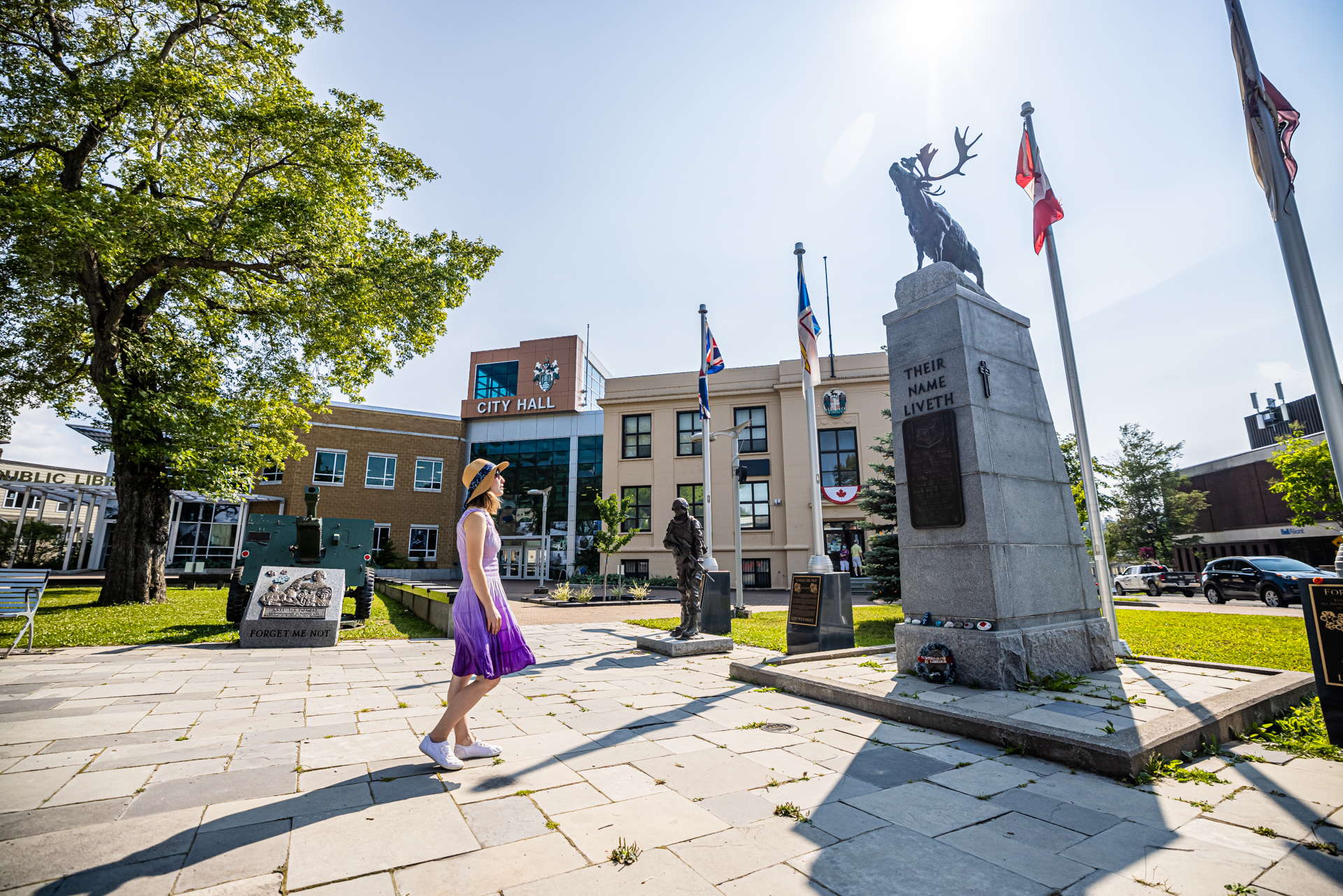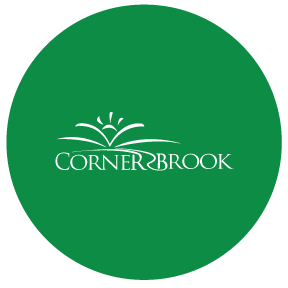In Newfoundland and Labrador, each person generates more than seven litres of Household Hazardous Waste each year. Often times, people do not realize the potential dangers associated with household hazardous waste. Improper disposal of hazardous products can cause serious harm to the environment.
Improper disposal in a landfill can contaminate our soil, a drinking water source and our wildlife.
Problems also arise when HHW used dispose of residuals down drains or storm sewers. HHW may corrode plumbing and cause failure in septic systems, and can contaminate harbours and coastal waters.
When HHW is burned, harmful chemicals are released into the atmosphere. These chemicals resettle or return in precipitation to both land and water.
When HHW is disposed of in regular garbage, waste workers are at risk of medical problems such as eye injuries or chemical burns. Inhaling or absorbing chemical fumes may cause temporary or permanent injury. Also, when in close proximity to one another, certain chemicals may interact in an undesirable way causing fires or explosions that could injure people, damage property and equipment, or result in forest fires.
- Corner Brook Household Hazardous Waste Collection
- Paint Recycling Program
- Safe Preparation and Transport
- Disposal Options for HHW
- What Materials are Hazardous?
- Frequently Asked Questions
Corner Brook Household Hazardous Waste Collection
Wild Cove Landfill now has an HHW drop-off facility on site
- They are Household Hazardous Waste, not Commercial Hazardous Waste.
- They do not accept items that are unlabeled or if they are unable to determine through inspection exactly what it is.
- There will be no change to drop off HHW if items are segregated and scanned/scaled in separately from refuse intended for disposal.
- They are open during normal landfill hours. Mon-Sat 8:00 a.m. – 4:15 p.m.
- They do not accept waste in containers greater than 20 liters.
- They encourage users to browse the selection of used paints at the landfill and take what could be useful.
- HHW bin is located in the same area as the residential drop-off bins.
- If you have any questions please see the HHW attendant.
- You need an RFID scan card for access, if you do not already have a card, a photo ID is required and please see scale attendant. New member cards come with a $10 credit.
For more information, call 709-637-1630 or Western Regional Waste Management at 1-844-437-2922.
Items Accepted
|
Items Not Accepted
|
For a detailed list of items accepted click here.
Paint Recycling Program
Newfoundlanders and Labradorians can now, in a more convenient and environmentally friendly manner, properly dispose of left-over paint by bringing it to one of the Paint Collections Sites now in place throughout the province. The following location accepts paint in Corner Brook:
Scotia Recycling Green Depot Corner Brook
55 Maple Valley Road
Hours: Mon – Sat 8:30 a.m. – 4:30 p.m. (Closed 12 to 1 for lunch)
709-634-2025
All household paints, all types of paint aerosols, and the cans they come in are accepted through the program. For a complete list of paint products accepted through the program, click here.
Safe Preparation and Transport of HHW
It is important to think about safety when preparing and transporting household hazardous waste.
- If possible, all materials should be left in the original container or well-labeled to allow for easy identification of contents.
- Make sure waste is secure during transport so there are no spills in the vehicle (i.e. tightly cap all containers). It’s best to pack materials in a rigid container or cardboard box to prevent spillage.
- Wastes should not be mixed. Some chemicals can be dangerous when they come in contact with other substances.
- Batteries should be in a container (i.e. plastic container, coffee can, etc).
Disposal Options for HHW
Although, at present, there is not a permanent HHW drop-off facility in Corner Brook, there are ways that we can safely dispose of some of our HHW. The following are some examples of recycling and safe disposal options for household hazardous waste:
Compact Fluorescent Light (CFL) Bulbs
Residents can return CFL bulbs to any Home Depot location.
Medications and Sharps
Prescription medication, with original labels, can be returned to the pharmacy where they were purchased.
Non-prescription medication (like cold medicine) and unlabeled prescription medication can be returned to any pharmacy.
Properly stored sharps can be returned to any pharmacy. Sharps must be collected and stored in an approved sharps container that can be purchased from some local pharmacies.
Metal and Lead Acid (Car) Batteries
Some metal recyclers accept lead acid (car) batteries, radiators, convertors, and non-ferrous metals such as copper, brass, aluminum, stainless steel, etc. Some metal recyclers also accept empty propane cylinders, empty aerosol cans (no longer under pressure), and dry, empty paint cans.
Local Metal Recyclers
Newco Metal & Auto Recycling Ltd- (709) 785-7637
Atlantic Recycling Inc. – (709) 634-2888
Humber Metals Ltd. – (709) 634-0022
Propane Tanks
Most propane retailers have a “swap-and-go” system where individuals can swap their empty propane tank for a filled one. Some retailers will also take back empty propane tanks that are not being swapped, for a handling fee.
Rechargeable Batteries:
Rechargeable batteries can be recycled through the Rechargeable Battery Recycling Corporation’s Call2Recycle Program. The following are local retailers that collect batteries:
DownEast Communication
1 Mount Bernard Ave
709-634-0450
Unused Fireworks, Explosives and Ammunition
Call the RNC or RCMP and arrange to have someone pick up the items for proper disposal.
Commercial Hazardous Waste
The Household Hazardous Waste Collection Program is designed to deal specifically with hazardous wastes generated in the home. Industrial, commercial and institutional organizations must dispose of their hazardous waste through one of the commercial hazardous waste haulers in the province.
Newalta Industrial Services – (709) 834-7350
Crosbie Industrial Services Ltd. – (709) 722-8212
Pardy’s Waste Management and Industrial Services – (709) 782-2003
What Materials are Hazardous?
There is a surprising amount of materials in our homes that are considered hazardous waste. Even products that may not seem hazardous, like compact fluorescent light bulbs and toiletries, contain hazardous materials.
Most of the hazardous materials in our homes can be identified by the following hazard symbols:
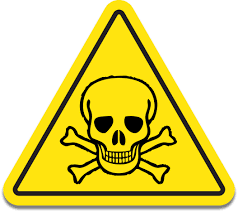 |
Toxic/Poison: Can poison or damage living organisms. Toxic/poisonous materials include solvents, batteries, antifreeze, medications, pesticides, fertilizers, wood stains and preservatives, radiator coolants, compact fluorescent light bulbs, and any confirmed or suspected carcinogens. |
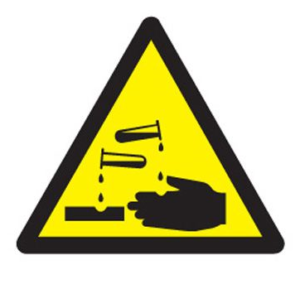 |
Corrosive: Can eat away at surfaces, including skin. Corrosive materials include bleach and household cleaners, rust removers, wax strippers, laundry stain removers, oven and drain cleaners, and automotive lead-acid batteries. |
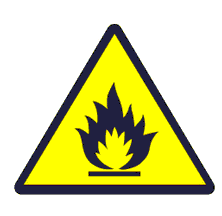 |
Flammable: Can burn easily and includes fuel oil, gasoline, motor oil, kerosene, camping fuel, paint thinners, methyl hydrate, lighter fluids, contact cement, oil-based paints, insect repellent, aerosol containers (that are not empty), furniture-cleaners, paint brush cleaners, and gasoline/oil mixtures. |
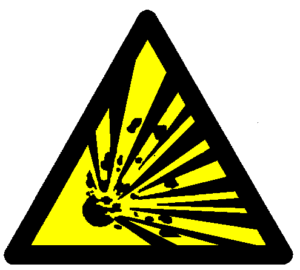 |
Reactive/Explosive (pressurized container): Can poison or damage living organisms and include gas cylinders that carry propane or butane, and aerosol cans containing unused products. |
Hazardous materials include:
| Paint products Oil Aerosols Pesticides Flammable solids Oxidizers Lead acid batteries |
Flammable liquids Corrosives Toxic liquids Alkali batteries Compressed gases Propane cylinders |
What not to bring to an HHW collection event
| Ammunition Explosives Biomedical wastes Asbestos PCBs |
Smoke Alarms Commercial waste Fireworks Empty aerosol cans |
Frequently Asked Questions
1. Are all materials collected through HHW events recycled?
Whenever possible, waste materials collected through HHW events are recycled. In some cases, however, the collected material can not be recycled, but it is disposed of in an environmentally responsible manner.
2. Where do materials go to be recycled or disposed of?
The majority of materials collected through HHW collection events are sent to Quebec for recycling and/or proper disposal. Other materials, such as propane cylinders and paint and paint products, are sent to Nova Scotia for recycling. And any oil collected through HHW events is recycled in Foxtrap, Newfoundland.
3. How does HHW pollute the environment? Does it just sit in the landfill?
HHW material, when disposed of with your garbage, can cause serious harm to the environment. When it rains, water runs through the landfill and when that water mixes with decomposing waste, a toxic liquid known as leachate is created. This leachate runs, or “leaches”, from the dump and pollutes ground and surface water and soil.
4. Are there things I can do to avoid having hazardous waste in my home?
Yes, there are things you can do to avoid having HHW materials in your home. There are natural, safe alternatives for many household products including toiletries, cleaners, and garden care products. Before bringing hazardous waste into your home, see what options are available to you if there are no alternatives available, only purchase the amount of HHW you need.
5. How can I safely store my hazardous waste until the collection event?
Whenever possible, hazardous waste materials should be stored in their original containers. Hazardous waste materials should be kept away from heat or flame and in areas that are not accessible to pets or children. Ensure that containers with residual material are closed tightly.
6. My business generated hazardous waste. Can I bring it to an HHW collection event?
The Household Hazardous Waste Collection program is designed to deal specifically with hazardous waste generated in the home. Industrial, commercial, and institutional organizations must dispose of their hazardous waste through one of the commercial hazardous waste haulers in the province.

